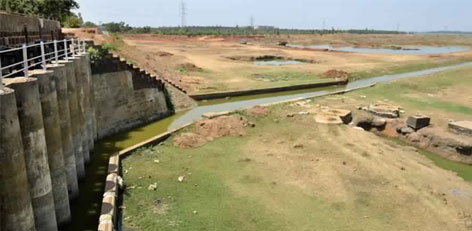Presence of micro plastics in the Chennai water reservoirs, study to be conducted
Posted on: 28/Mar/2019 10:21:16 AM

There are four water reservoirs that supply water to the Chennai city and they are Puzhal, Chembarambakkam, Poondi and Cholavaram. The shocking information gathered is some micro plastics were found in the Puzhal reservoir when a study was conducted. This would pose major health issues to those who consume the water is known.
The latest news that has emerged now is study to examine the presence of harmful substances in other 3 reservoirs like Chembarambakkam, Cholavaram and Poondi would be carried out by the Institute of Ocean Management or IOM of Anna University or AU, Chennai. From the above mentioned water reservoirs. Chennai metro water draws water, treats it and then supplies the water across the city of Chennai. Recently some researchers belonging to AU have noticed the presence of some micro plastics in some drinking water sources in Chennai and in Puzhal reservoir.
Chennai Metro Water department was shocked by this and has approached the Institute of Ocean Management at Anna University. The purpose was to conduct a thorough study of all the water sources. It is worth mentioning that micro plastics are invisible to naked eyes and are extremely small particles of plastics. The point is this water when is heated above 100 degree Celsius releases a toxic substance known as dioxin. Dioxin is a carcinogen or cancer causing substance and when it gets dissolved in water it could lead to many health issues.
As per Mr. Seshachalam Srinivasulu, IOM director, the surface of the water present in the remaining 3 water reservoirs would be examined thoroughly. He added that samples from treatment plants of metro water would be collected for necessary analysis. Now it is said that along with the test report, detailed report for the remedial measures that could provide solution to the issue would also be provided by the IOM Chennai.
From the first week of April, the team of researchers of IOM would begin their analysis work to detect the presence of micro plastics in the remaining 3 water reservoirs and it would be carried out in a phased manner. According to G. Kalpana, a scientist, it is clear that an equipment used for micro plastics sampling termed �Manta Net� would be purchased by the IOM and then the study would start. Information collected is the department of science and technology or DST had already provided Rs 2 lakh for procuring Manta Net. To monitor the condition of the 4 water reservoirs, funds have been provided by DST.







